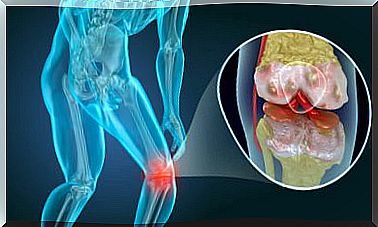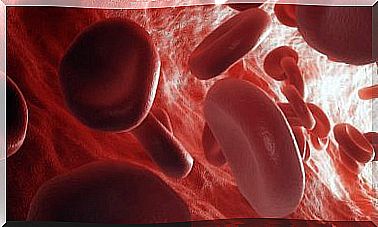Depression And Obesity: Is There A Genetic Link?
It is clear that there is a relationship between depression and obesity, based on the research in this regard that has already been carried out. However, it is not yet clear whether these two disorders have a genetic or other link.

Science has found relationships between depression and obesity, but it is not yet clear if this is a genetic link or that it is due to other factors. At the moment, the available data are contradictory and do not allow a definitive conclusion to be drawn.
There are several studies that talk about a link between depression and obesity. In fact, one of those studies directly posits that such a link is genetic. However, new research has challenged these approaches.
It has even been suggested that it is obvious that there is more depression in obese people, simply because of the psychological and social implications of being overweight. In turn, depressed people change their eating habits and this can lead to overweight.
Let’s see, then, what is the information about it in the scientific community.
Body mass index and depression
A study carried out at the University of Exeter (England) and the Cancer Research Center of the University of South Australia, in 2018, is considered the most comprehensive so far. In its preliminary conclusions, the research indicates that a high Body Mass Index -BMI- implies a high risk of suffering from depression.
The research was published in the International Journal of Epidemiology . It is based on data collected in a genetic information bank on 50,000 people between the ages of 37 and 73, who had been diagnosed with depression. They compared this data with 29,000 people who were neither depressed nor overweight.
In the end, they pointed out that for every 4.7 points increase in BMI , the probability of having depression increased by 18%. In the case of women, this percentage rose to 23%. The study added that men who were too thin were also at higher risk for depression.

Depression and obesity: a genetic link?
In 2012, a study developed by researchers from the University of Granada -Spain-, led by Dr. Margarita Rivera Sánchez, was made public, in which it was suggested that there is a genetic link between depression and obesity.
The research pointed out that depression modifies the effects of the FTO gene, also known as the “obesity gene. ” The consequence of this, according to what the study indicates, is that people with depression present an increase in their Body Mass Index (BMI).
To reach these conclusions, also preliminary, a database of 2,440 individuals diagnosed with depression was taken as a basis, contrasting their data with a control group made up of 809 healthy individuals. The analyzes led to consider that obesity problems are more frequent in those who suffer from depression.
The obesity gene
In 2019 a new study was carried out, this time carried out by the Skarmeta group of the Andalusian Center for Developmental Biology in Seville; and that of Marcelo Nóbrega, from the department of human genetics at the University of Chicago. The results were published in the journal Nature .
In this research they pointed out that in recent years about 2,000 studies have been published in which the FTO gene is designated as the “obesity gene”. However, for these researchers, the data is incorrect. Although this gene is involved in fat metabolism , the true obesity gene would be iroquois 3 or IRX3.
IRX3 fulfills essential functions in practically all human viscera and its action occurs mainly in the cerebral hypothalamus. The researchers indicated that only between 25 and 45% of obesity cases are due to genetic causes.

There is no gene for depression
To finish confusing the picture, in 2019 the American Journal of Psychiatry published a study led by Richard Border, a geneticist at the University of Colorado. This expert, together with his work team, analyzed the genetic data of 620,000 people. From this they concluded that there is no gene for depression.
The researchers collected information on 18 genes that have been referred to as incidents or determinants of depression. At the end of the study, they pointed out that neither of these nor the associated groups determine depressive states. Each gene has only a tiny effect on mood disorders.
This research debunks the idea that depression is a purely genetic disorder. It also debunks the claim that there is a “depression gene.” It is not ruled out that there are hereditary factors involved, but it is suggested that these make up a complex network of associated genes, which has not yet been discovered.









